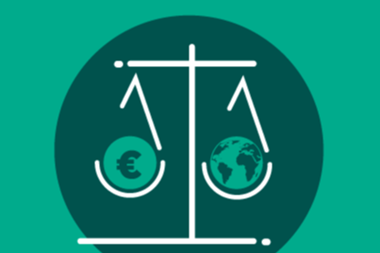Thinking about decarbonisation will only get us so far when it comes to achieving international climate goals. This is one of the premises behind a new index being developed by specialist asset manager Mirova’s research centre and Sweep, an online platform for managing carbon and ESG data.
Its Corporate Climate Contribution Indicator (CCCI) initiative is about providing corporates and investors with a more holistic picture of companies’ contributions to achieving net-zero goals. This will include decarbonisation, but not only, with their climate solutions’ impact and climate financing also to set to be assessed.
Importantly, the indicator will weigh the relative impact of each lever on a company’s contribution, as different contribution channels will matter in different ways depending on the company’s geography and sector.
“The CCCI will represent a significant advancement in our approach to shareholder engagement by enabling us to engage in dialogue on the key action levers based on a transparent methodology,” said Manuel Coeslier, co-head of the Mirova Research Center.
“This index can also serve as a compass for investment strategies to enhance their performance – and potentially their climate impact.”

The methodology will be developed transparently and will be presented at COP30, the next United Nations’ climate change summit, in November in Belém, Brazil.
Meanwhile, proxy season is in full swing. Last month, nearly a quarter of BP’s shareholders voted against the reappointment of its chair, with dissatisfaction in some cases for almost diametrically opposed reasons. For some shareholders it will be because the oil and gas major has watered down its clean energy strategy without putting it to the vote, and for others it will have been because the strategy was not weakened further.
Among the AGMs taking place this week is Equinor’s, with proposals on the agenda ranging from those urging the company to withdraw from offshore wind projects to one from Nordic pension funds challenging the compatibility of increased oil and gas activities with Paris Agreement goals. Last week, asset owners were addressing bank AGMs, asking the lenders to increase their climate ambitions.
The proxy season unfolds against the backdrop of a retreat from ESG commitments in parts of the asset management and corporate industry due to political headwinds in the US. European asset owners have reaffirmed their commitment to sustainability goals, but a clearer steer as to their expectations would be appreciated.
Speaking at an industry conference last month, the outgoing PRI CEO David Atkin said asset managers are “crying out” for more leadership from asset owners. This will be one of the topics up for discussion at IPE’s upcoming Transition conference in Brussels – do register!
Items to note:
- The IPE Transition Conference & Awards 2024 is taking place on 17 June at the Cardo Brussels, Autograph Collection in Belgium
Susanna Rust
ESG Editor
This news briefing was published earlier in the week. If you would like to receive it regularly, on your ‘IPE profile’, go to ‘My Newsletters‘ and select any from the list.























